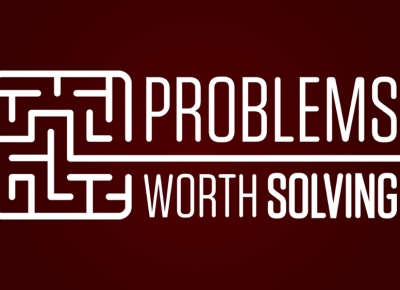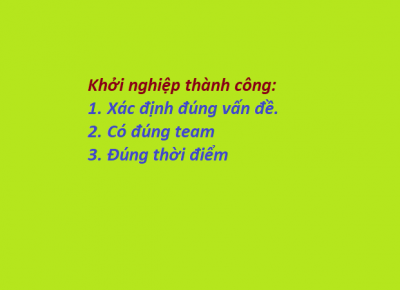How to write better essays
As the government begins its crackdown on essay mill websites, it’s easy to see just how much pressure students are under to get top grades for their coursework these days. But writing a high-scoring paper doesn’t need to be complicated. We spoke to experts to get some simple techniques that will raise your writing game.
Tim Squirrell is a PhD student at the University of Edinburgh, and is teaching for the first time this year. When he was asked to deliver sessions on the art of essay-writing, he decided to publish a comprehensive (and brilliant) blog on the topic, offering wisdom gleaned from turning out two or three essays a week for his own undergraduate degree.
“There is a knack to it,” he says. “It took me until my second or third year at Cambridge to work it out. No one tells you how to put together an argument and push yourself from a 60 to a 70, but once you to get grips with how you’re meant to construct them, it’s simple.”
Poke holes
The goal of writing any essay is to show that you can think critically about the material at hand (whatever it may be). This means going beyond regurgitating what you’ve read; if you’re just repeating other people’s arguments, you’re never going to trouble the upper end of the marking scale.
“You need to be using your higher cognitive abilities,” says Bryan Greetham, author of the bestselling How to Write Better Essays. “You’re not just showing understanding and recall, but analysing and synthesising ideas from different sources, then critically evaluating them. That’s where the marks lie.”
But what does critical evaluation actually look like? According to Squirrell, it’s simple: you need to “poke holes” in the texts you’re exploring and work out the ways in which “the authors aren’t perfect”.
“That can be an intimidating idea,” he says. “You’re reading something that someone has probably spent their career studying, so how can you, as an undergraduate, critique it?
“The answer is that you’re not going to discover some gaping flaw in Foucault’s History of Sexuality Volume 3, but you are going to be able to say: ‘There are issues with these certain accounts, here is how you might resolve those’. That’s the difference between a 60-something essay and a 70-something essay.”
Critique your own arguments
Once you’ve cast a critical eye over the texts, you should turn it back on your own arguments. This may feel like going against the grain of what you’ve learned about writing academic essays, but it’s the key to drawing out developed points.
“We’re taught at an early age to present both sides of the argument,” Squirrell continues. “Then you get to university and you’re told to present one side of the argument and sustain it throughout the piece. But that’s not quite it: you need to figure out what the strongest objections to your own argument would be. Write them and try to respond to them, so you become aware of flaws in your reasoning. Every argument has its limits and if you can try and explore those, the markers will often reward that.”
Fine, use Wikipedia then
The use of Wikipedia for research is a controversial topic among academics, with many advising their students to stay away from the site altogether.
“I genuinely disagree,” says Squirrell. “Those on the other side say that you can’t know who has written it, what they had in mind, what their biases are. But if you’re just trying to get a handle on a subject, or you want to find a scattering of secondary sources, it can be quite useful. I would only recommend it as either a primer or a last resort, but it does have its place.”
Focus your reading
Reading lists can be a hindrance as well as a help. They should be your first port of call for guidance, but they aren’t to-do lists. A book may be listed, but that doesn’t mean you need to absorb the whole thing.
Squirrell advises reading the introduction and conclusion and a relevant chapter but no more. “Otherwise you won’t actually get anything out of it because you’re trying to plough your way through a 300-page monograph,” he says.
You also need to store the information you’re gathering in a helpful, systematic way. Bryan Greetham recommends a digital update of his old-school “project box” approach.
“I have a box to catch all of those small things – a figure, a quotation, something interesting someone says – I’ll write them down and put them in the box so I don’t lose them. Then when I come to write, I have all of my material.”
There are a plenty of online offerings to help with this, such as the project management app Scrivener and referencing tool Zotero, and, for the procrastinators, there are productivity programmes like Self Control, which allow users to block certain websites from their computers for a set period.
Look beyond the reading list
“This is comparatively easy to do,” says Squirrell. “Look at the citations used in the text, put them in Google Scholar, read the abstracts and decide whether they’re worth reading. Then you can look on Google Scholar at other papers that have cited the work you’re writing about – some of those will be useful. But quality matters more than quantity.”
And finally, the introduction
The old trick of dealing with your introduction last is common knowledge, but it seems few have really mastered the art of writing an effective opener.
“Introductions are the easiest things in the world to get right and nobody does it properly,” Squirrel says. “It should be ‘Here is the argument I am going to make, I am going to substantiate this with three or four strands of argumentation, drawing upon these theorists, who say these things, and I will conclude with some thoughts on this area and how it might clarify our understanding of this phenomenon.’ You should be able to encapsulate it in 100 words or so. That’s literally it.”
Reference
https://www.theguardian.com/education/2017/mar/07/how-to-write-an-essay
https://weblearn.ox.ac.uk/access/content/group/159bc1ca-0c7b-454c-8aad-c6c711affc04/Documents/acadwrit2013.pdf
https://www.oxfordscholastica.com/blog/how-to-write-the-perfect-essay/









